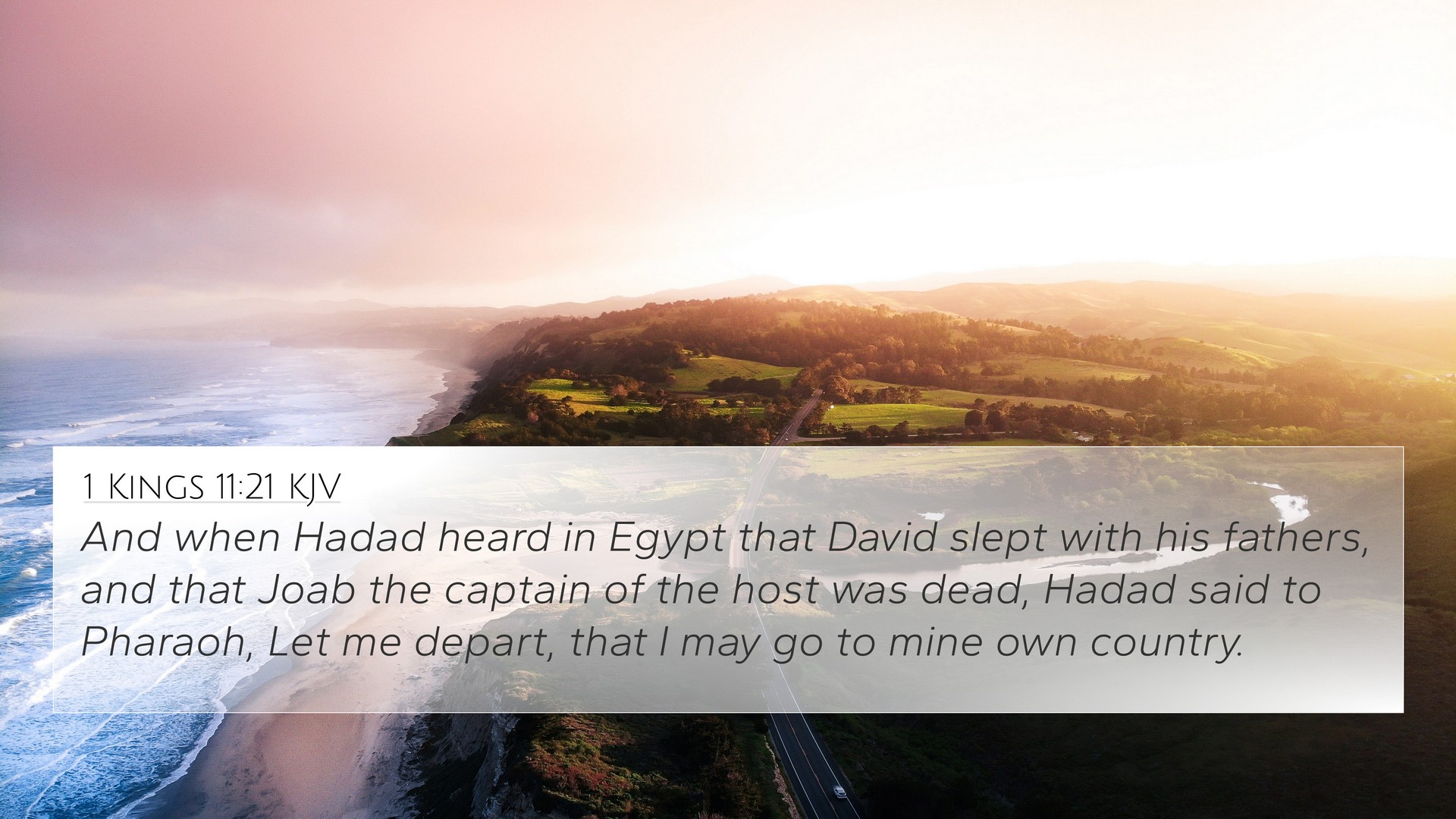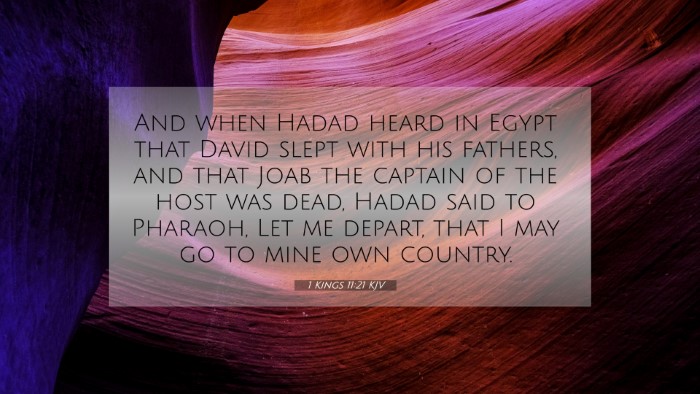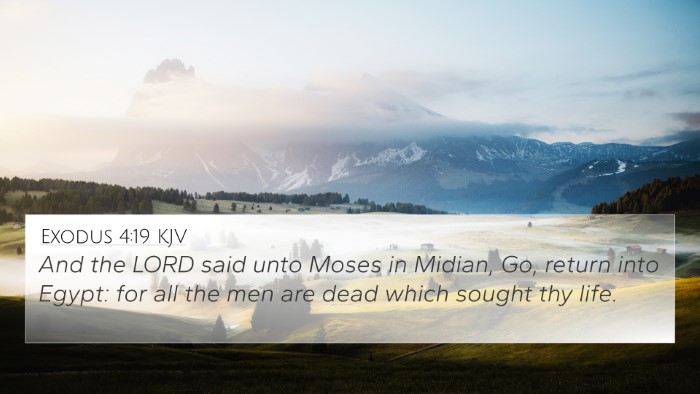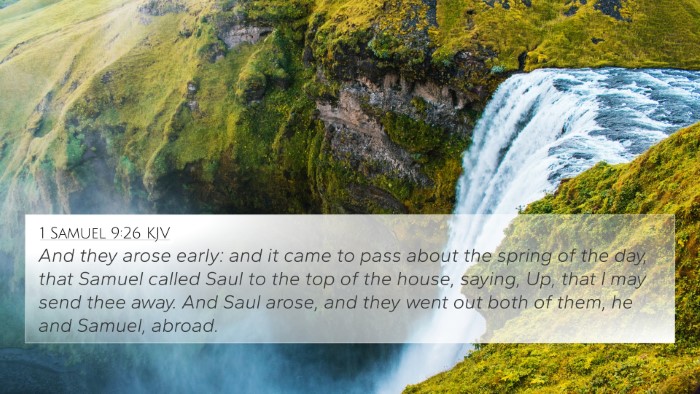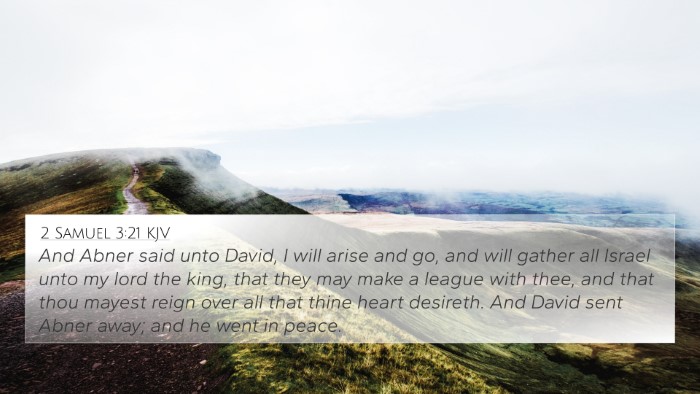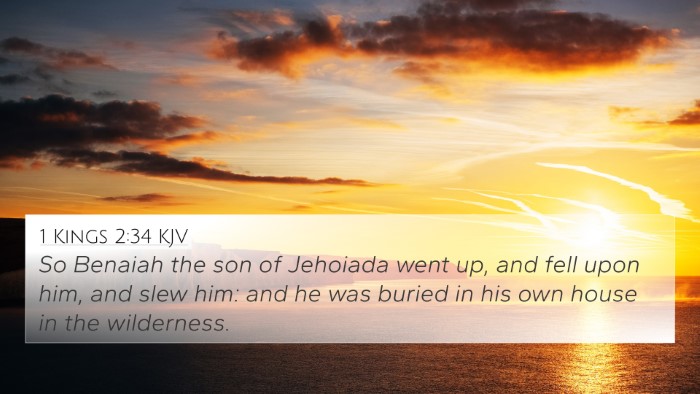Understanding 1 Kings 11:21
Verse: “And when Hadad heard in Egypt that David slept with his fathers, and that Joab the captain of the host was dead, he said, I will return into my own country.”
Context of 1 Kings 11:21
This verse captures a pivotal moment in the narrative of Israel's history, focusing on Hadad, an Edomite, who hears of the deaths of key figures in Israel and sees an opportunity to reclaim his position against Israel.
- Historical Background: Hadad was a member of the royal family of Edom and had been living in exile in Egypt due to conflict with David.
- Significance of David's Death: David’s death signifies a shift in power dynamics within Israel and allows previous adversaries like Hadad to reconsider their stances.
Commentary Insights
Insights from notable commentaries provide a deeper understanding of the implications of this verse.
Matthew Henry’s Commentary
Henry emphasizes the providential aspect of Hadad's return, illustrating how God orchestrates events in the world even through the actions of opposing nations. The verse highlights the consequences of David's sins, as his failure to fully eradicate Israel’s enemies led to future conflicts.
Albert Barnes’ Commentary
Barnes interprets Hadad's actions as a portrayal of vengeance and the pursuit of power after the death of David. He stresses the importance of recognizing how the political landscape of Israel was affected by internal strife and external adversaries during this tumultuous time.
Adam Clarke’s Commentary
Clarke discusses Hadad’s reminder of the volatility of leadership and the cycle of vengeance. According to Clarke, Hadad’s return signifies a broader theme of retribution, where past grievances influence contemporary actions in the geopolitical sphere.
Cross-References for Further Study
Here are some Bible verses that relate to 1 Kings 11:21, illustrating thematic connections and linking biblical texts:
- 1 Samuel 15:23 - Highlights the significance of disobedience and its consequences.
- 2 Samuel 8:13 - Details David’s victories and the nations that feared him, setting the stage for subsequent conflicts.
- 1 Kings 11:14 - Discusses God raising up adversaries against Solomon, sowing the seeds for Hadad’s relevance.
- Jeremiah 49:7-22 - Elaborates on the prophetic aspects concerning Edom and its fate.
- Genesis 36:31 - Provides background on the kings of Edom, enriching the context of Hadad’s claim for leadership.
- 2 Chronicles 21:16-17 - Further explores the conflicts with Edom during later kings' reigns.
- Proverbs 16:9 - Speaks to God’s sovereignty over human plans and intentions, which is illustrated in Hadad’s story.
Thematic Connections and Interpretation
This verse is a gateway to understanding the broader narrative of conflict, succession, and divine orchestration in the history of Israel:
- Conflict and Retribution: Hadad’s actions reflect the ongoing struggle of nations seeking dominance and the consequences of past sins (Romans 6:23).
- God’s Sovereignty: Despite human failings, God’s overarching plan to fulfill His promises to Israel continues, highlighting themes of redemption and judgment (Romans 8:28).
- Leadership and Power: The transition of power following David’s death emphasizes the fragility of leadership and the role of divine providence (1 Timothy 2:1-2).
Concluding Thoughts
1 Kings 11:21 serves as a critical intersection of history, prophecy, and divine sovereignty. Understanding this verse involves recognizing its implications in the broader narrative of scripture and its relevance to both the past and present.
To facilitate deeper study, one might consider using tools for Bible cross-referencing or a Bible concordance to explore the connections between this and other verses comprehensively.
